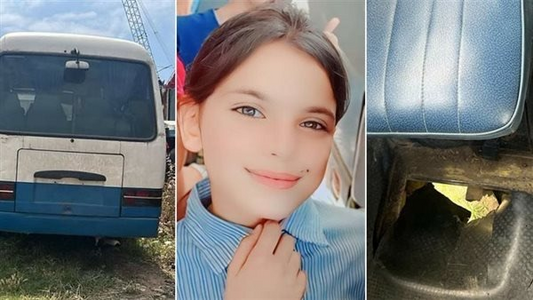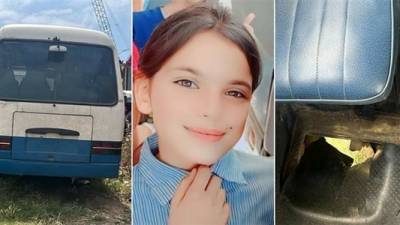The city of Tripoli witnessed a true tragedy, represented by the death of 13-year-old student Nasreen Azeddin after she fell from a gap inside the school bus she was riding on her way home. This incident is not the first, and it may not be the last if official negligence and the absence of clear and effective traffic safety plans in Lebanon continue, particularly regarding school transportation. Anyone can notice the miserable conditions of the school buses that travel between areas, some of which are not even fit for operation—how can this be acceptable for those designated for schools?
Kamel Ibrahim, the director of the Lebanese International Academy for Traffic Safety, stated, "Since the recent crisis after 2020, there has been a significant decline in traffic safety, especially concerning school transport." He pointed out that "school fees have become very high, pushing parents to look for cheaper options, but these are the most dangerous means of transportation to schools. This is why we see some students riding tuk-tuks or small buses, especially in poorer areas such as Tripoli and the Beqaa Valley."
In a conversation with MTV, Ibrahim said, "The school bus is the most expensive option in the academic year and may be more costly than tuition in some cases, given the costs of fuel, maintenance, and so on, assuming it is owned by the school, which should appoint a supervisor for each bus, as stipulated in Article One of Law No. 551/96, to monitor the students and assist them while getting on and off."
He added, "The bigger problem lies with the private buses that are not owned by the school, such as the ‘neighborhood minibus,’ which is usually cheaper and transports students ‘however they can,’ without any supervisor present. These buses may not be registered, lack insurance, and do not even meet the mechanical inspection standards."
"Unfortunately, parents in poor areas resort to these cheap buses regardless of all the missing safety conditions," Ibrahim continued, highlighting the need for oversight from security forces and municipalities, which are required to intervene just as they do in issues surrounding displaced persons and others. He recalled the experience of the Byblos municipality, which previously prohibited any school bus from passing through the city if it was not registered and did not meet mechanical inspection fees, and if its driver did not possess the appropriate license, emphasizing that the number of students transported should be appropriate.
Conditions have changed, especially after the economic crisis, which has fostered lawlessness, and everything has become permissible in the prevailing chaos, according to Ibrahim, particularly concerning school transport across different areas and the lack of oversight. Here lies the role of security forces and local authorities, which is also a result of stopping mechanical inspections. He also pointed to the responsibility of bus drivers, stating that holding drivers accountable is necessary for others to learn and comply with the laws to protect the children who are entrusted to them.
But what about solutions? Ibrahim suggests the need for a clear national plan and the implementation of laws that protect students, a role required of the Ministry of Education and the Ministry of Interior, which have been absent regarding school transport issues. He warns, "The situation of students in Lebanon is at risk, and this issue must be addressed during the summer without waiting for the next academic year to prevent another tragedy. Unfortunately, the dangers will grow with the continued absence of mechanical inspections for buses, just as self-inspections are absent, along with the lack of enforcement of laws on school transportation."
This tragic reality should not continue, and those concerned must act on remedies before another victim falls, so that Nasreen does not become just a number among the victims of traffic accidents in Lebanon, according to MTV.




